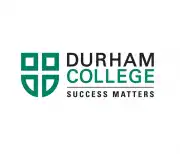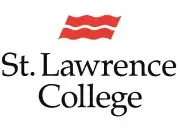Health Programs in Canada for International Students
- Advantages of Studying Health Programs in Canada
- Formats and Levels of Health Programs in Canada
- Top Universities for Health in Canada
- How to Apply for Health Programs in Canada
- Documents Required for Health Programs in Canada
- Tuition Costs for Health Programs in Canada
- Scholarships and Grants for Health Programs in Canada
- Career Prospects After Health Studies in Canada
- Is It Worth Studying Health Programs in Canada
- Frequently Asked Questions

Diploma - Office Administration (Health Services)
Durham CollegeToday's medical practices are technology-driven multitasking environments that necessitate capable managers at the head.
A pupil in this program will acquire a fundamental knowledge of anatomy and physiology in addition to learning medical terminology.
You will have the knowledge…

Diploma - Practical Nursing
Durham CollegeGraduates of the Practical Nursing curriculum will be equipped to take on the growing demands of the nursing profession. Using your knowledge, skills, and judgment as a practical nurse, you'll tend to patients across the spectrum of care in a way that's both secure and effective.
The College…

Advanced Diploma - Massage Therapy
Durham CollegeLearners will prepare for entry-level practice in the massage therapy profession with the information, skills, and attitudes that promote patient safety, optimal health, and professional conduct.
Anatomy fundamentals are emphasized extensively, with a focus on their practical application…

Certificate - Autism and Behavioural Sciences
Durham CollegeAs the number of Ontarians affected by Autism Spectrum Disorder (ASD) rises, so does the demand for trained experts who can provide effective interventions to help those affected by the disorder and their loved ones.
Students in this program, which serves children, adolescents, and adults…

Certificate - Dental Assisting (Levels I and II)
Durham CollegeThis field could be ideal for you if you want to make a difference in people's lives through their oral health and work as part of a collaborative team.
A Dental Assistant educates and cares for patients in a variety of dental offices, and this course will equip students with the knowledge,…

Certificate - Dental Office Administration
Durham CollegeThe administrative skills of dental office managers, such as data entry, scheduling, accounting, and human communication, are essential to the smooth running of any dental practice.
They act as a liaison between patients and dentists, facilitating communication and meeting patient needs.…

Certificate - Pre-Health Sciences Pathway to Advanced Diplomas and Degrees
Durham CollegeStudents interested in pursuing health science-related advanced diploma or degree programs, such as the collaborative Bachelor of Science in Nursing (BScN) program offered by Durham College and Ontario Tech University (Ontario Tech), will benefit from the Pre-Health Sciences Pathway to Advanced Diplomas…

Certificate - Pre-Health Sciences Pathway to Certificates and Diplomas
Durham CollegeIf you're thinking about a future in the health sciences, you should check out the Pre-Health Sciences Pathway to Certificates and Diplomas (PHSC). This two-semester course will prepare you for further study in a health science field at the university level, whether that be paramedic school, practical…

Diploma - Esthetician
St. Lawrence College, CanadaEstheticians and Medical Estheticians work with their hands to make people look and feel better. SLC's Esthetician program is the best in Ontario and Canada.
Dynamic Designs, our in-house training salon, lets students practice with community members. The program covers business and interpersonal…

Diploma - Fitness and Health Promotion
St. Lawrence College, CanadaDo you like exercise and health or helping others? If so, join this program.
Join our team to become a leader in fitness and health promotion, a profession with many career options.
This two-year program combines personal and professional development, exercise science, fitness,…
Advantages of Studying Health Programs in Canada
Canada is rightfully considered one of the best countries for obtaining education in healthcare. It offers high-quality academic programs recognized worldwide, as well as opportunities for internships at leading medical institutions and research centers.
A special advantage for international students is the large number of English-taught programs. Nearly all universities in the country offer courses taught entirely in English, making Canada particularly attractive for students from different countries. Most programs are taught entirely in English, which significantly simplifies adaptation.
The main advantages of studying health in Canada include:
- Quality education — Canadian diplomas in health are recognized by employers and academic institutions worldwide;
- Large number of English-taught programs — most courses are taught in English, which is especially convenient for international students;
- Safety and high standard of living — Canada consistently ranks among the safest countries in the world;
- Developed infrastructure for practice — universities closely collaborate with clinics, hospitals and research centers;
- Immigration opportunities — graduates of in-demand fields, including health programs, may qualify for permanent residency.
Healthcare education in Canada includes not only theoretical training but also active practical components through university collaborations with hospitals, medical institutions and research laboratories. Graduates acquire in-demand knowledge and skills recognized worldwide.
Moreover, Canada is known for its high level of safety, stable economy and comfortable living and study conditions. The multicultural environment allows students to feel part of an international community.
Formats and Levels of Health Programs in Canada
Canada offers a wide range of health study programs:
- Bachelor's Degree — duration 3-4 years, basic theoretical training and initial practical skills.
- Diploma programs and certificates — practice-oriented courses lasting from 1 year.
- Master's Degree — 1-2 years of advanced study and research.
- PhD — preparation of research personnel, duration 3-5 years.
- Preparatory programs — for those who need to improve language skills or academic preparation before main studies.
Popular fields: public health, medical sciences, nursing, physiotherapy, pharmacy, biomedicine.
Top Universities for Health Programs in Canada
| University Name | Program Name | Fees for International Students (CAD/year) | World Ranking* | Comment |
|---|---|---|---|---|
| University of Toronto | Bachelor of Health Studies, Public Health, Medicine | 60,000 — 75,000 | Top 30 | One of Canada's oldest and most prestigious universities |
| McGill University | BSc in Global Health, Medicine, Public Health | 50,000 — 68,000 | Top 50 | Recognized as a world leader in medicine |
| University of British Columbia | Bachelor of Health and Exercise Sciences | 45,000 — 60,000 | Top 40 | Strong scientific research and infrastructure |
| McMaster University | Health Sciences, Public Health, Medicine | 50,000 — 65,000 | Top 150 | Known for innovative teaching methods |
| University of Alberta | Bachelor of Public Health, Nursing, Medicine | 45,000 — 58,000 | Top 120 | Strong programs in medical sciences |
* According to QS and Times Higher Education international rankings
How to Apply for Health Programs in Canada
The application process consists of several steps:
- Choosing a program and university — study the requirements of specific programs.
- Preparing documents — collecting academic transcripts and certificates.
- Language tests:
- IELTS Academic — minimum score usually 6.5-7.0;
- TOEFL — from 85 points;
- Duolingo — accepted at some universities.
- Interview — not required for all programs but common for medical fields.
- Additional exams:
- MCAT — mandatory for undergraduate medical programs;
- GRE — for master's programs in health research.
It's important to check with universities in advance whether a preparatory program is required for admission.
Documents Required for Health Programs in Canada
The following documents are required for application:
- High school diploma or degree with supplement;
- Official transcripts;
- Language test results (IELTS, TOEFL, Duolingo);
- Motivation letter;
- Recommendation letters;
- CV or resume (for master's and higher);
- Results of additional exams (MCAT, GRE) if required;
- Passport with sufficient validity period;
- Medical certificate (for some programs).
Some universities may request essays or portfolios, especially for interdisciplinary programs.
Tuition Fees for Health Programs in Canada
Tuition fees vary by university and program:
- Bachelor's: from 30,000 to 75,000 CAD per year;
- Master's: from 25,000 to 60,000 CAD per year;
- PhD: from 20,000 to 50,000 CAD per year;
- Certificate programs: from 15,000 to 35,000 CAD.
Additional expenses:
- Accommodation: 10,000 — 15,000 CAD per year;
- Food: about 3,000 — 6,000 CAD per year;
- Transport and personal expenses: 2,000 — 4,000 CAD per year;
- Health insurance: from 600 CAD per year.
The total estimated costs range from approximately 50,000 to 100,000 CAD per year.
Scholarships and Grants for Health Programs in Canada
Canada offers various types of financial support:
Academic scholarships (for academic achievements):
- International Entrance Scholarship;
- University of Toronto International Scholars Program;
- UBC Outstanding International Student Award.
Financial aid (based on financial need):
- Need-Based International Student Bursaries (at some universities).
Special scholarships:
- Scholarships for women in science;
- Scholarships for future public health specialists.
University grants:
- McGill Entrance Scholarships;
- University of Alberta International Scholarships.
Criteria:
- High academic performance;
- Language test scores;
- Motivation and leadership qualities.
Application deadlines: typically from December to March, but exact dates depend on the university.
Career Prospects After Health Studies in Canada
Healthcare education opens numerous opportunities:
Popular professions:
- Healthcare professionals;
- Public health specialists;
- Biomedical researchers;
- Pharmacists;
- Physiotherapists;
- Medical technologists.
In-demand fields:
- Healthcare administration;
- Biomedical research;
- Healthcare innovations.
Major employers:
- Canadian hospitals and clinics;
- Research centers;
- Private medical companies;
- International healthcare organizations.
Example companies:
- Toronto General Hospital;
- Vancouver Coastal Health;
- Medtronic Canada;
- Canadian Blood Services.
Graduates may also continue education or work abroad.
Is It Worth Studying Health Programs in Canada
Canada offers a balanced combination of education quality, safety and career prospects. In comparison:
- USA — expensive education but high prospects;
- Europe — has affordable programs but limited English-language options;
- Canada — optimal balance of cost, quality and work opportunities.
Conclusion: studying in Canada is a beneficial choice for those seeking prestigious healthcare education.
Frequently Asked Questions
1. Can I apply for health study programs in Canada without medical education?
Yes, you can apply for bachelor's and diploma programs right after high school.
2. How much does healthcare education cost in Canada?
Costs range from 30,000 to 75,000 CAD per year depending on level and university.
3. Is it difficult for international students to get into medical programs in Canada?
Competition is high, especially for physician training programs.
4. Can I get a scholarship for healthcare studies in Canada?
Yes, academic scholarships, university grants and financial aid are available.
5. Which Canadian universities are strongest in health?
Leaders in this field are University of Toronto, McGill University, University of British Columbia.
6. Are additional exams required for medical programs?
Medical programs often require MCAT. For other fields — depends on university requirements.
7. What are employment prospects after completing health programs in Canada?
Graduates are in demand at hospitals, pharmaceutical companies, research centers and private clinics.
8. Is it possible to stay and work in Canada after completing health programs?
Yes, graduates can obtain work permits and apply for immigration programs.